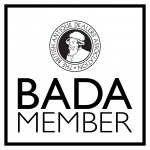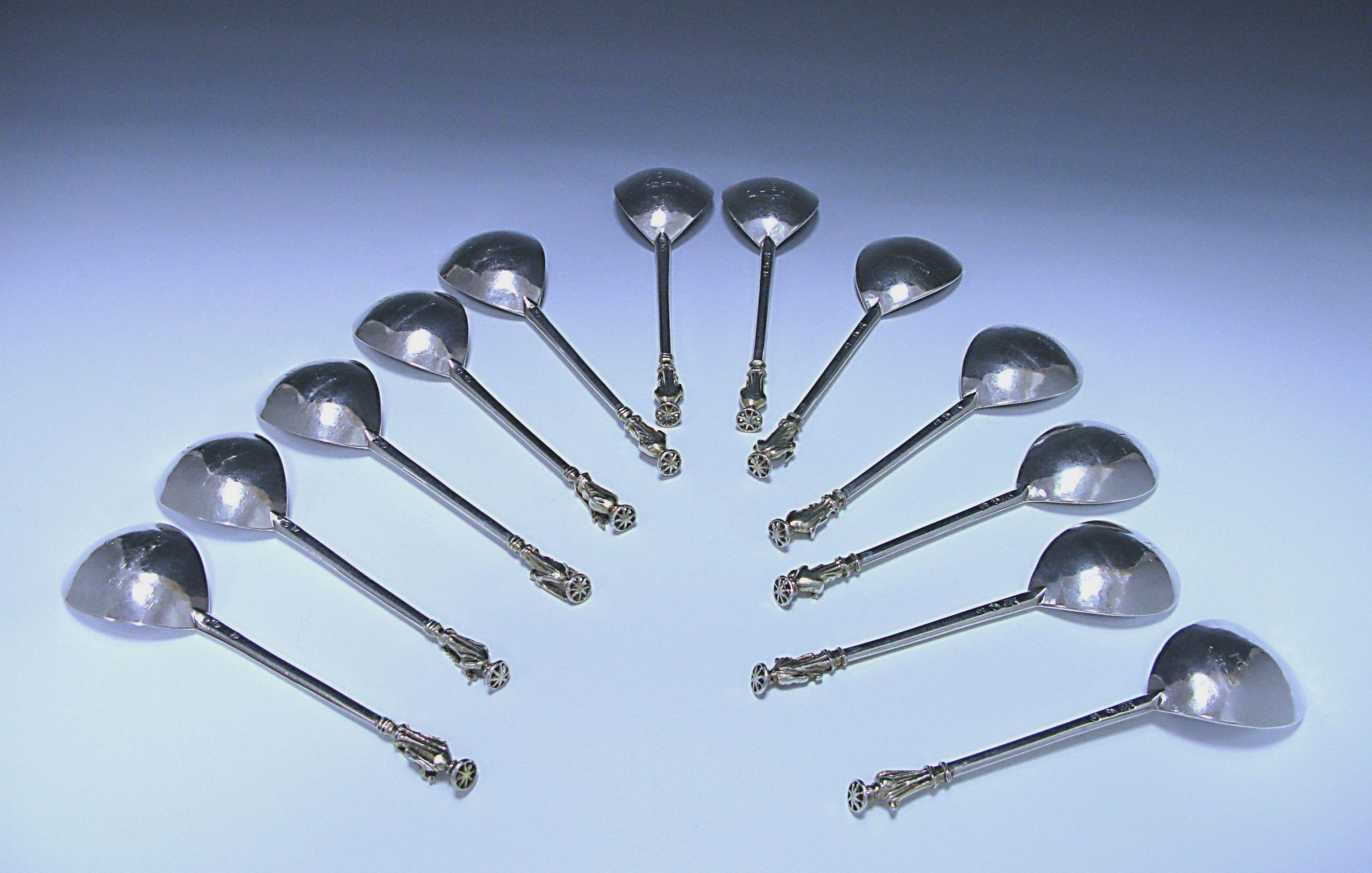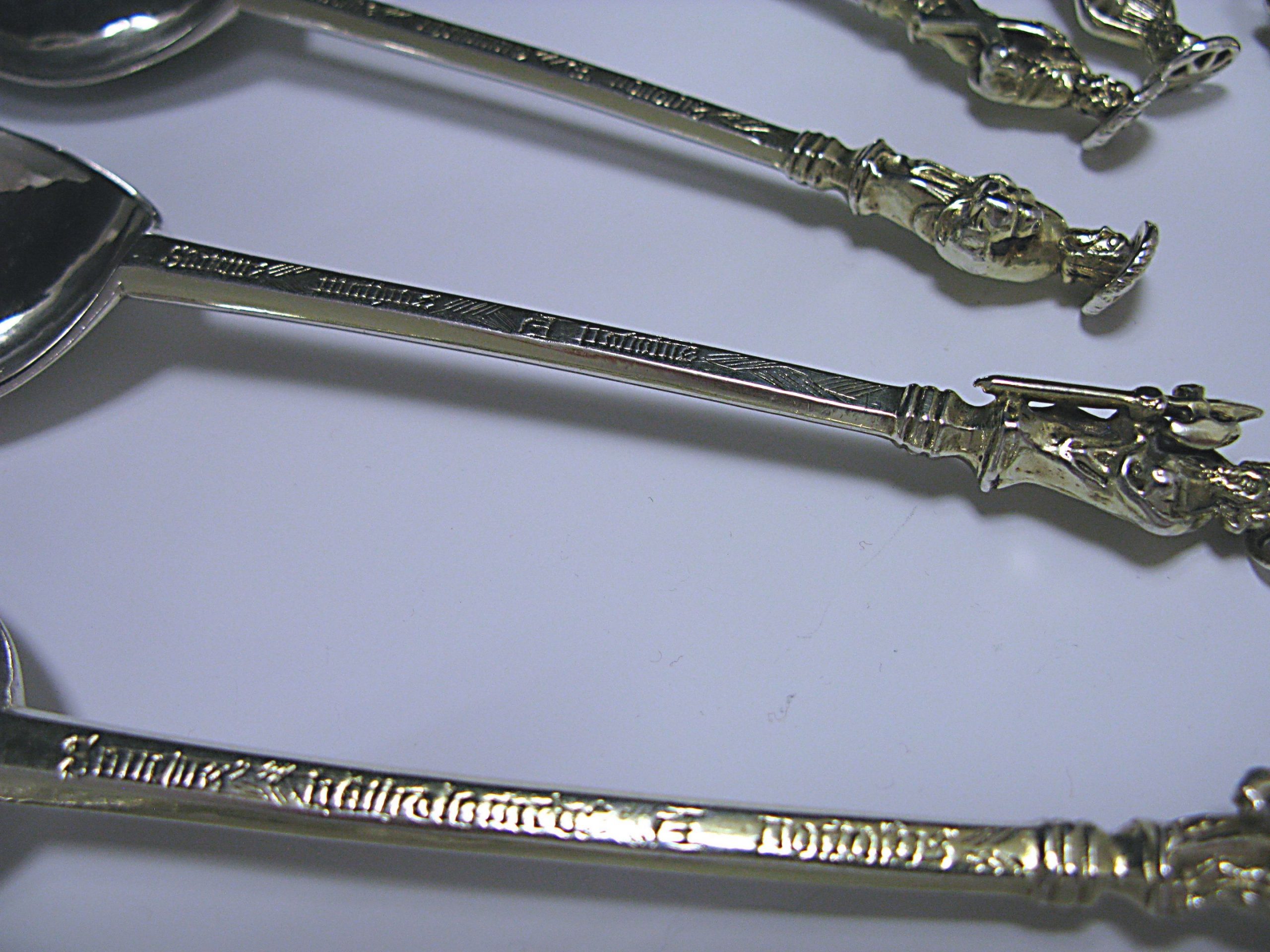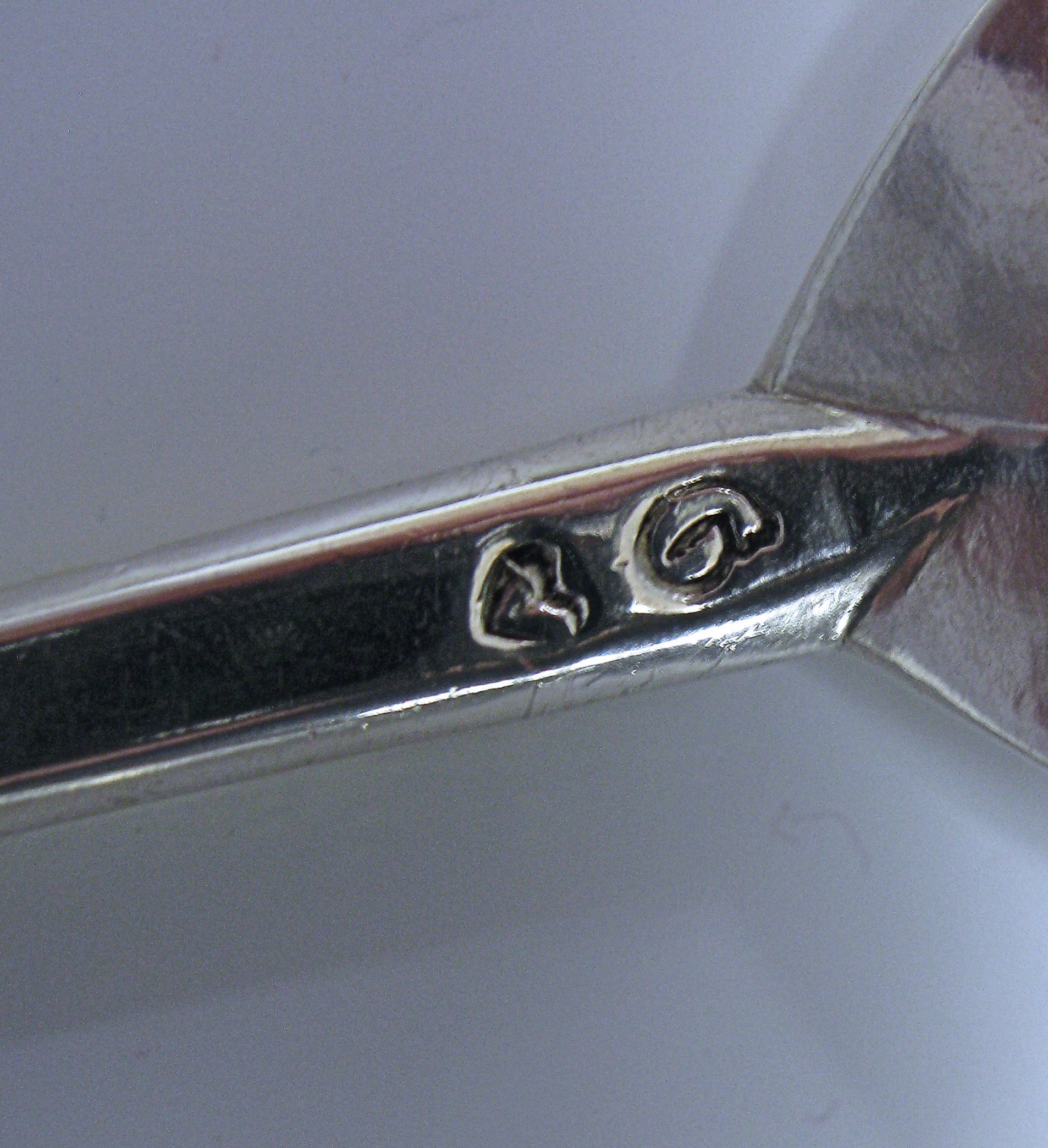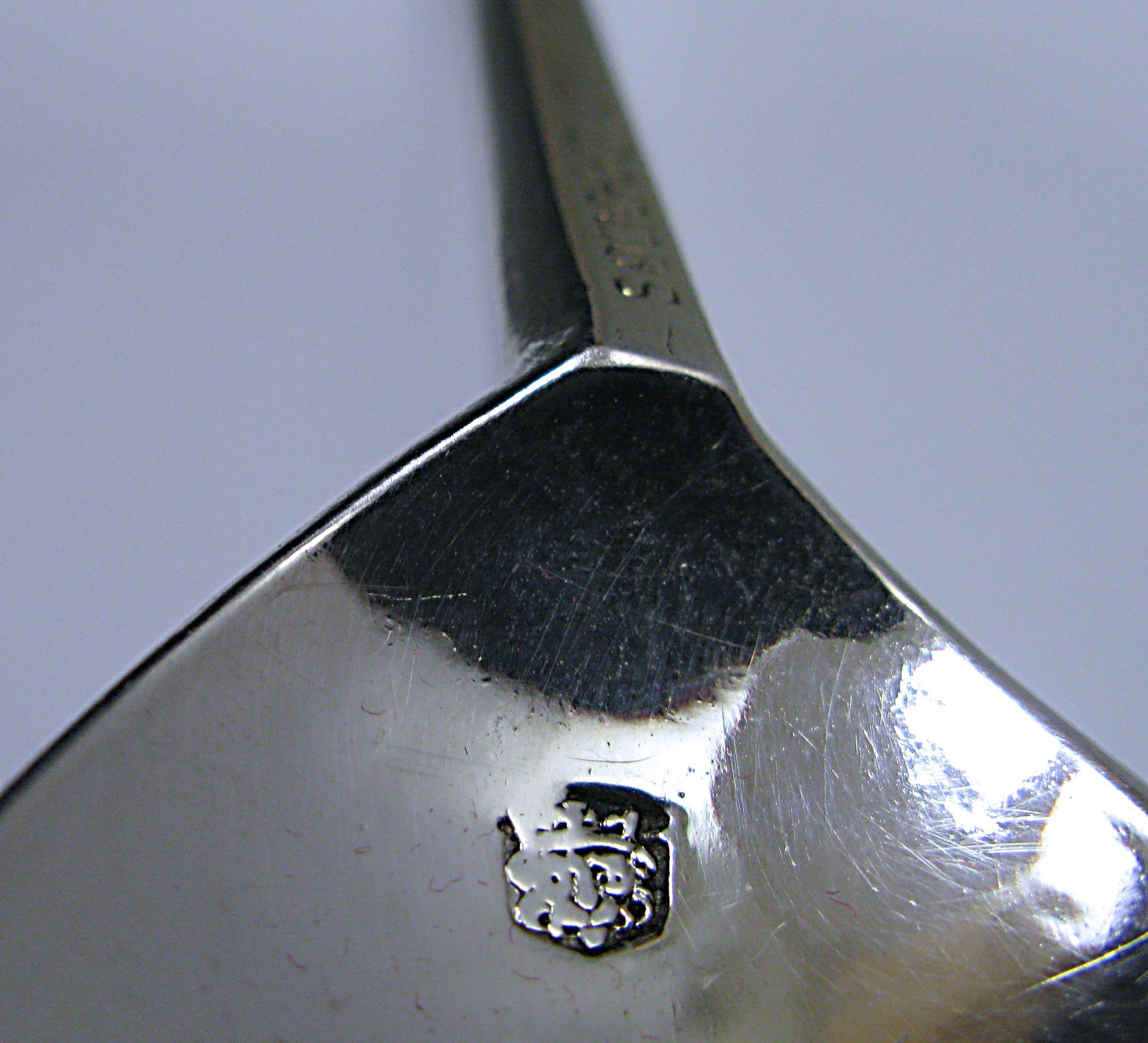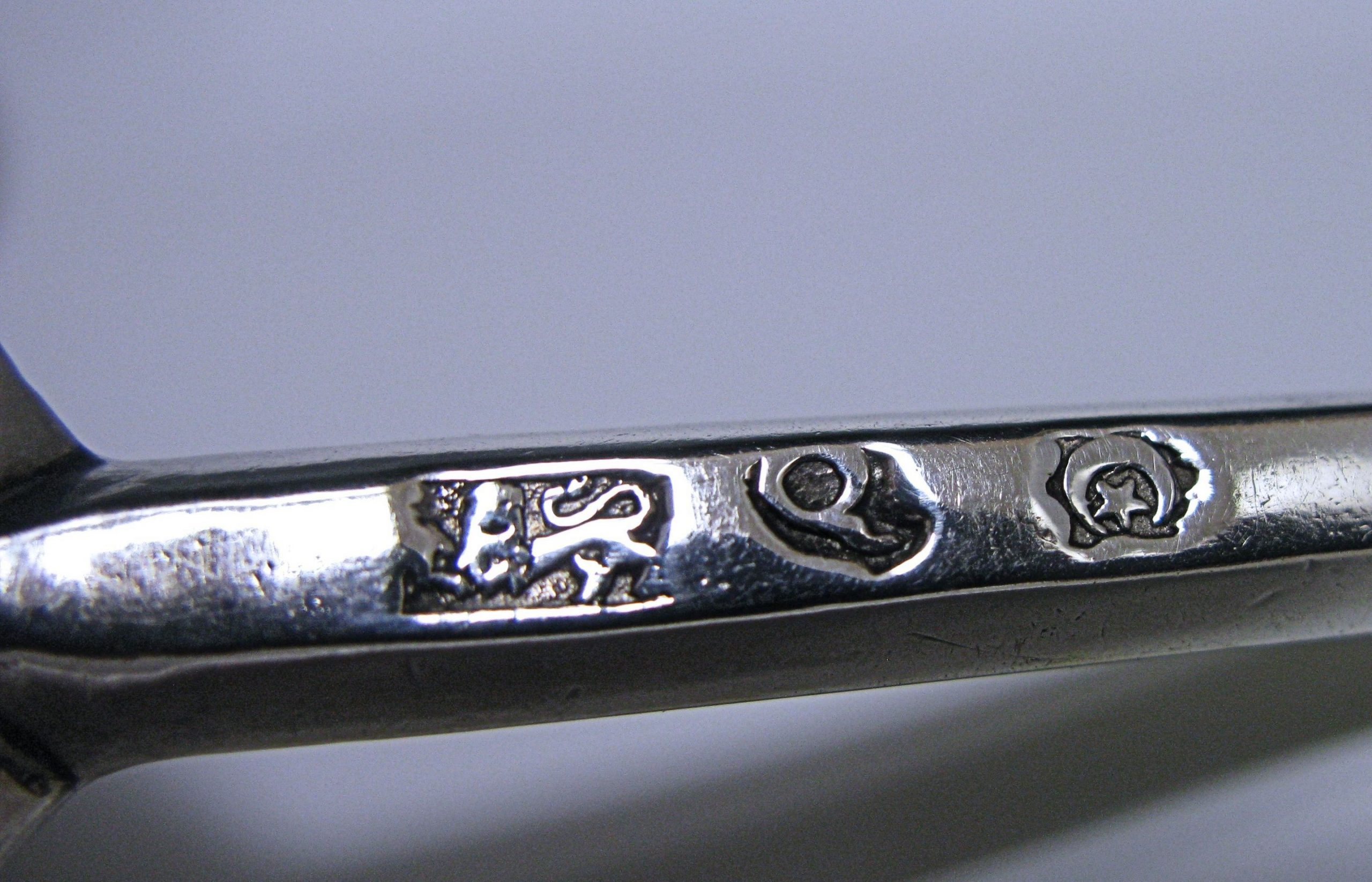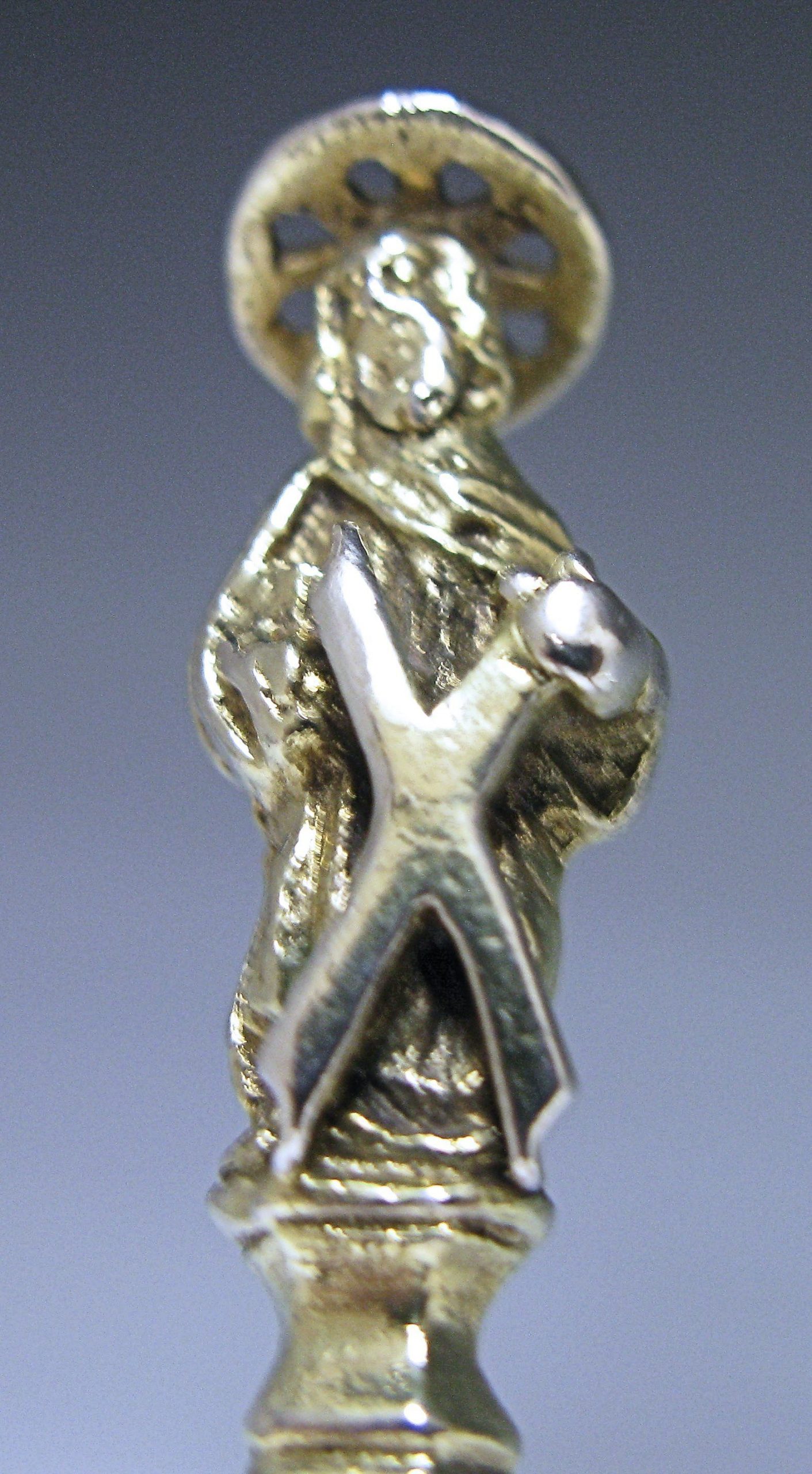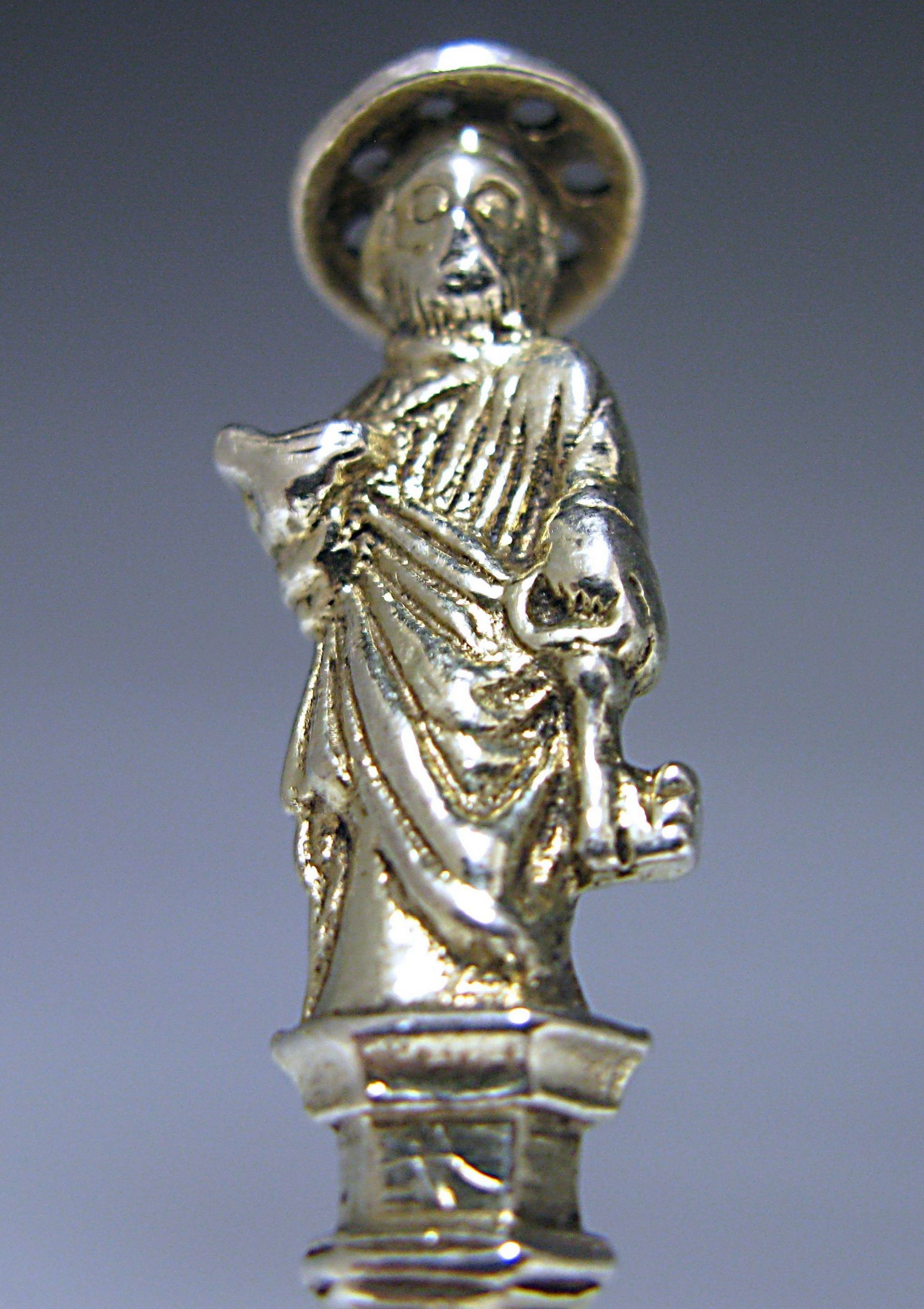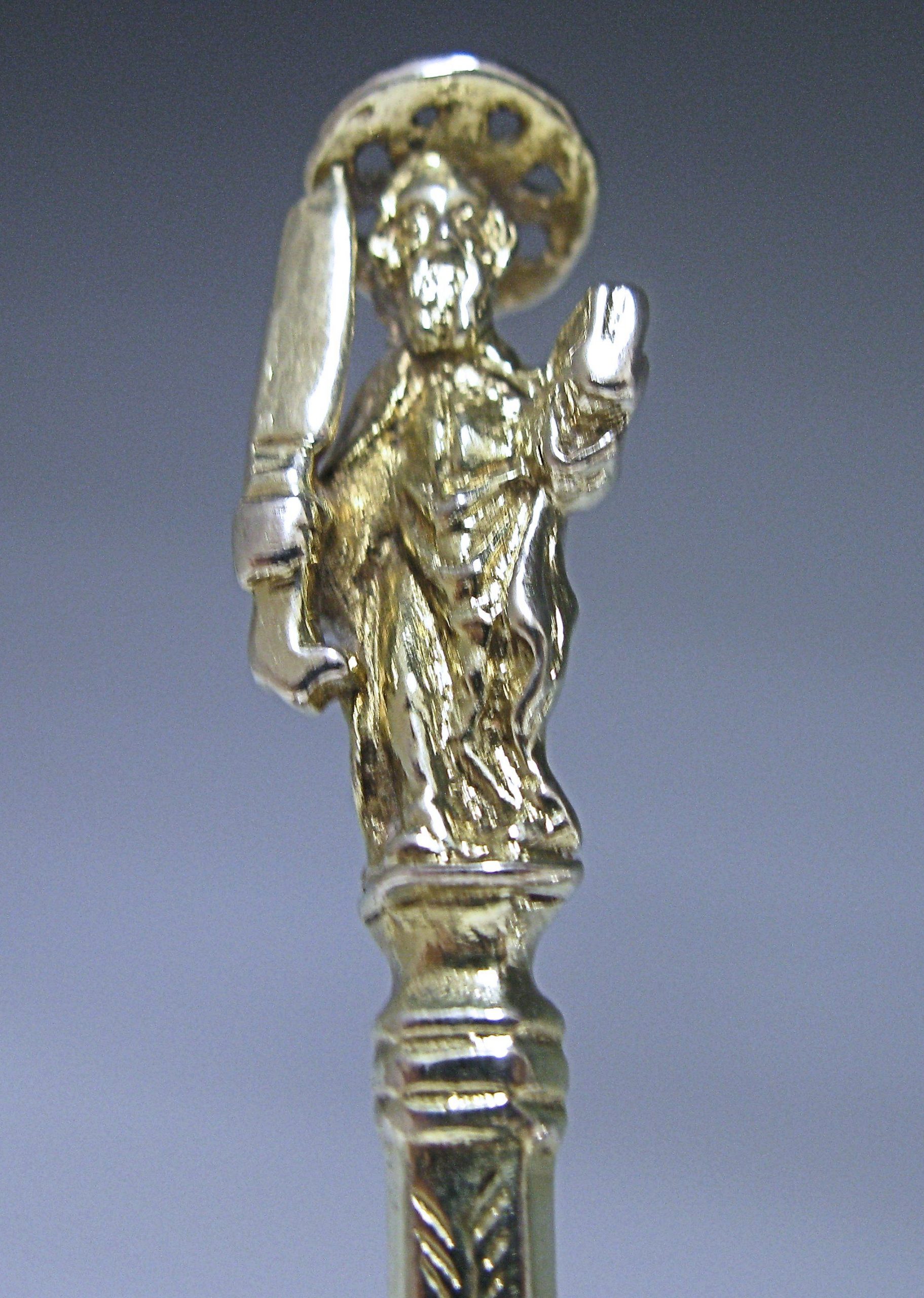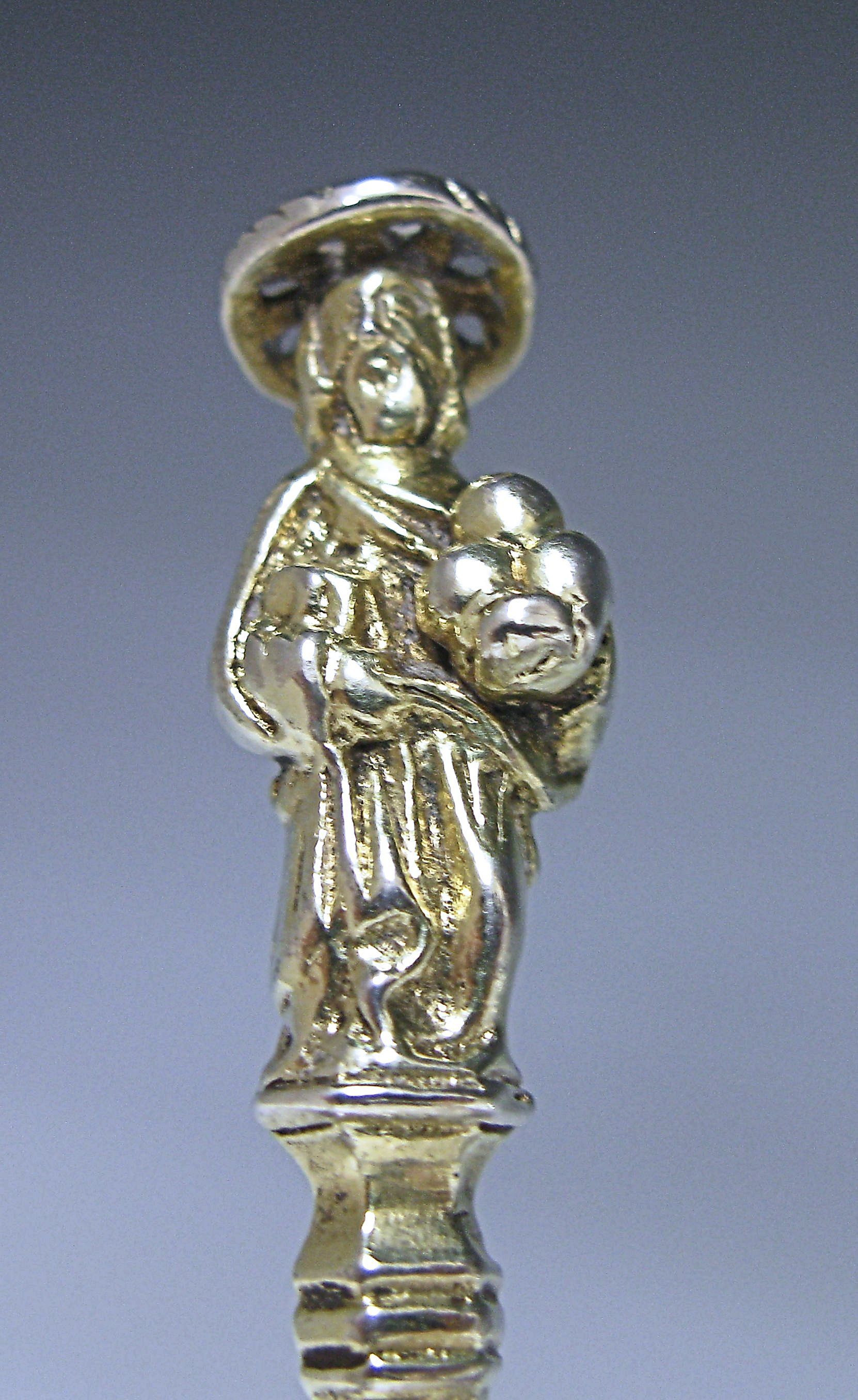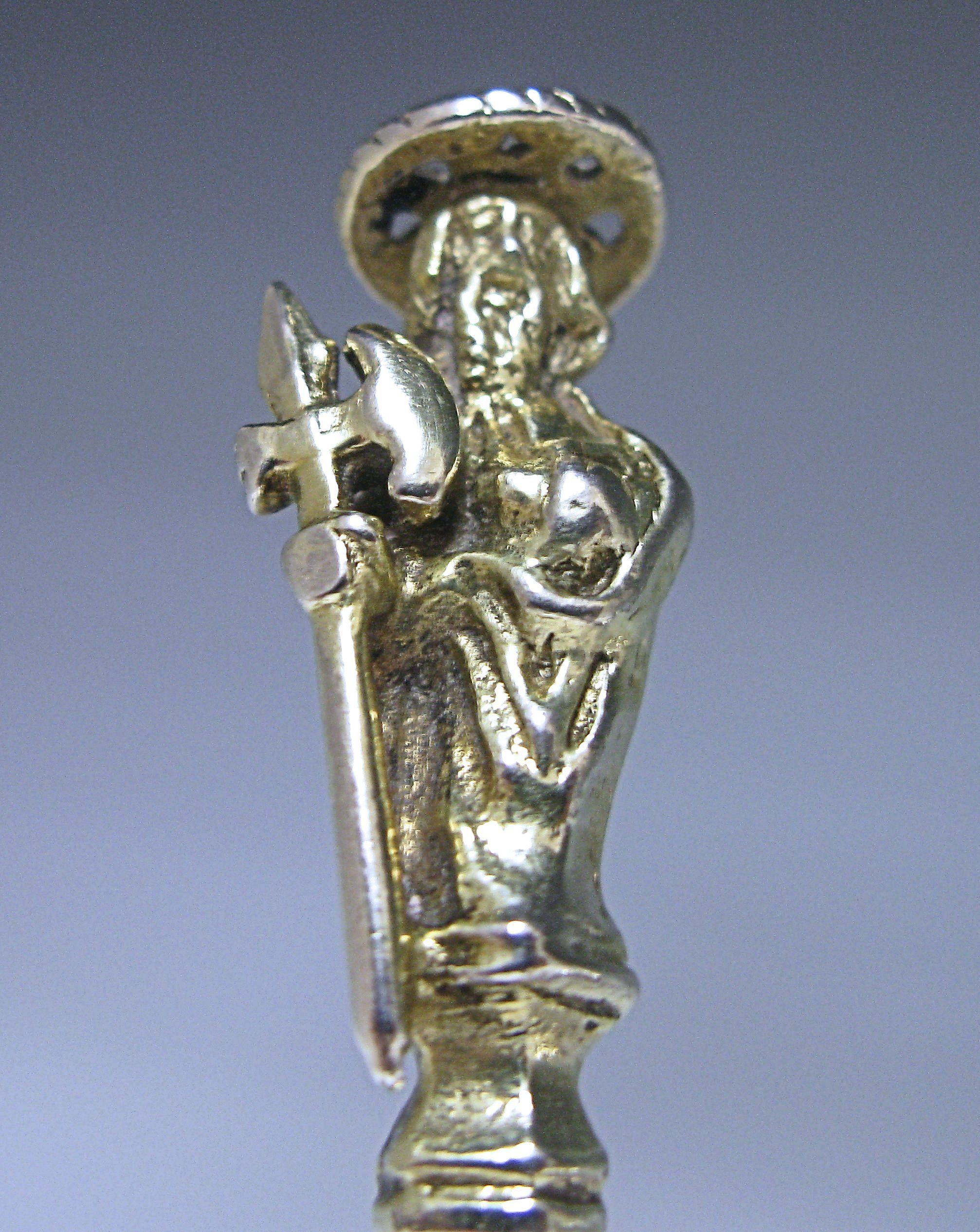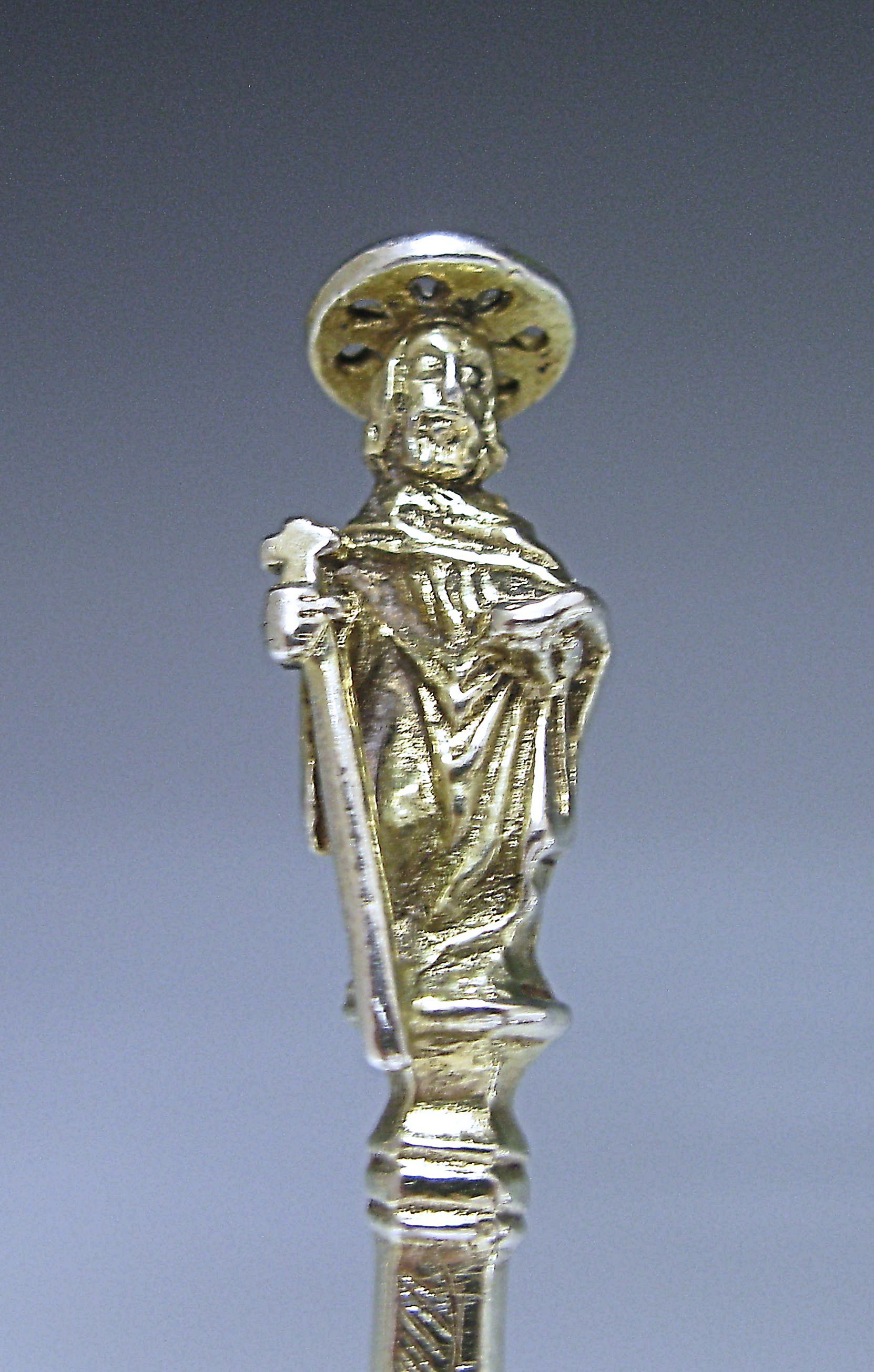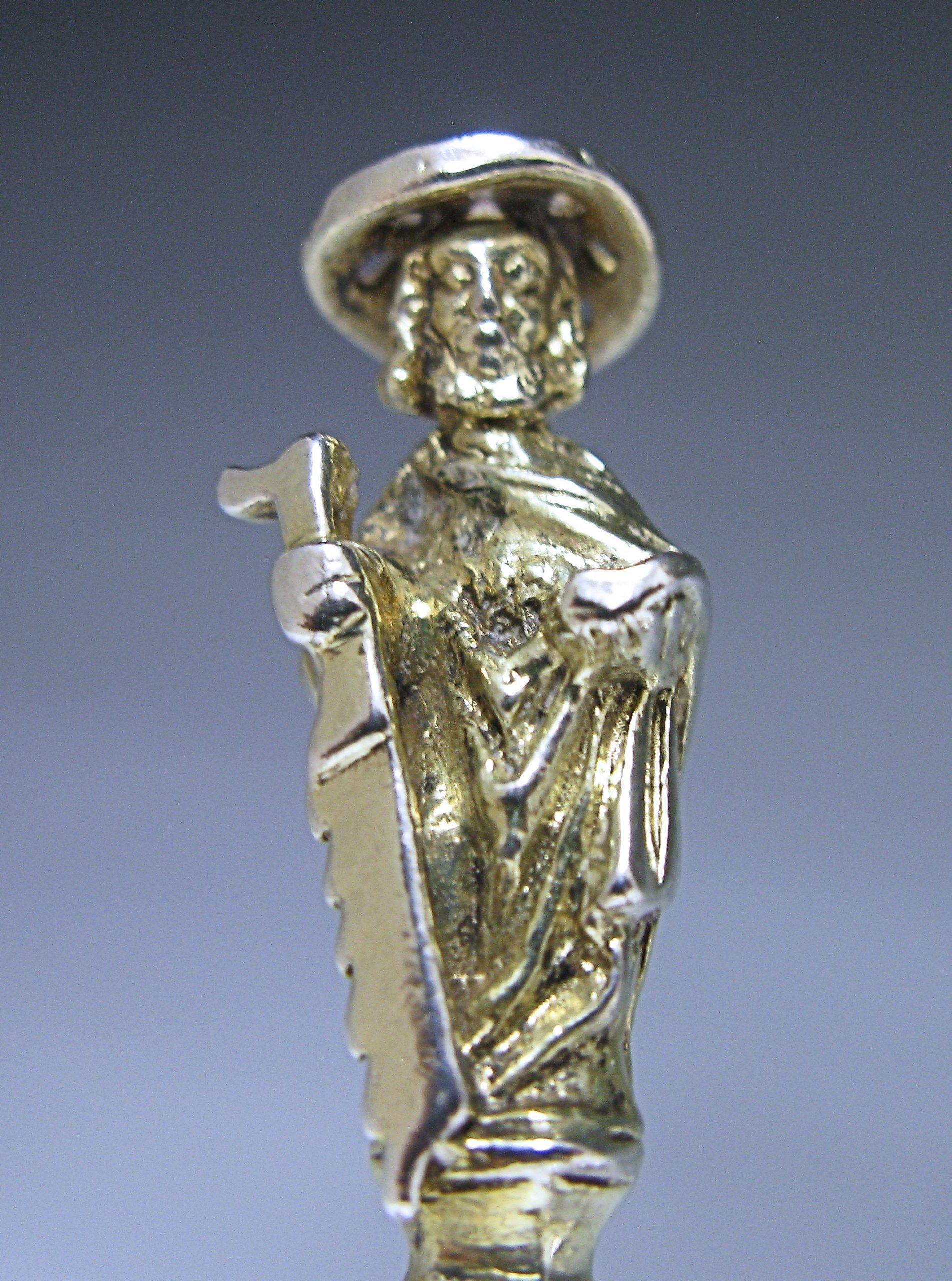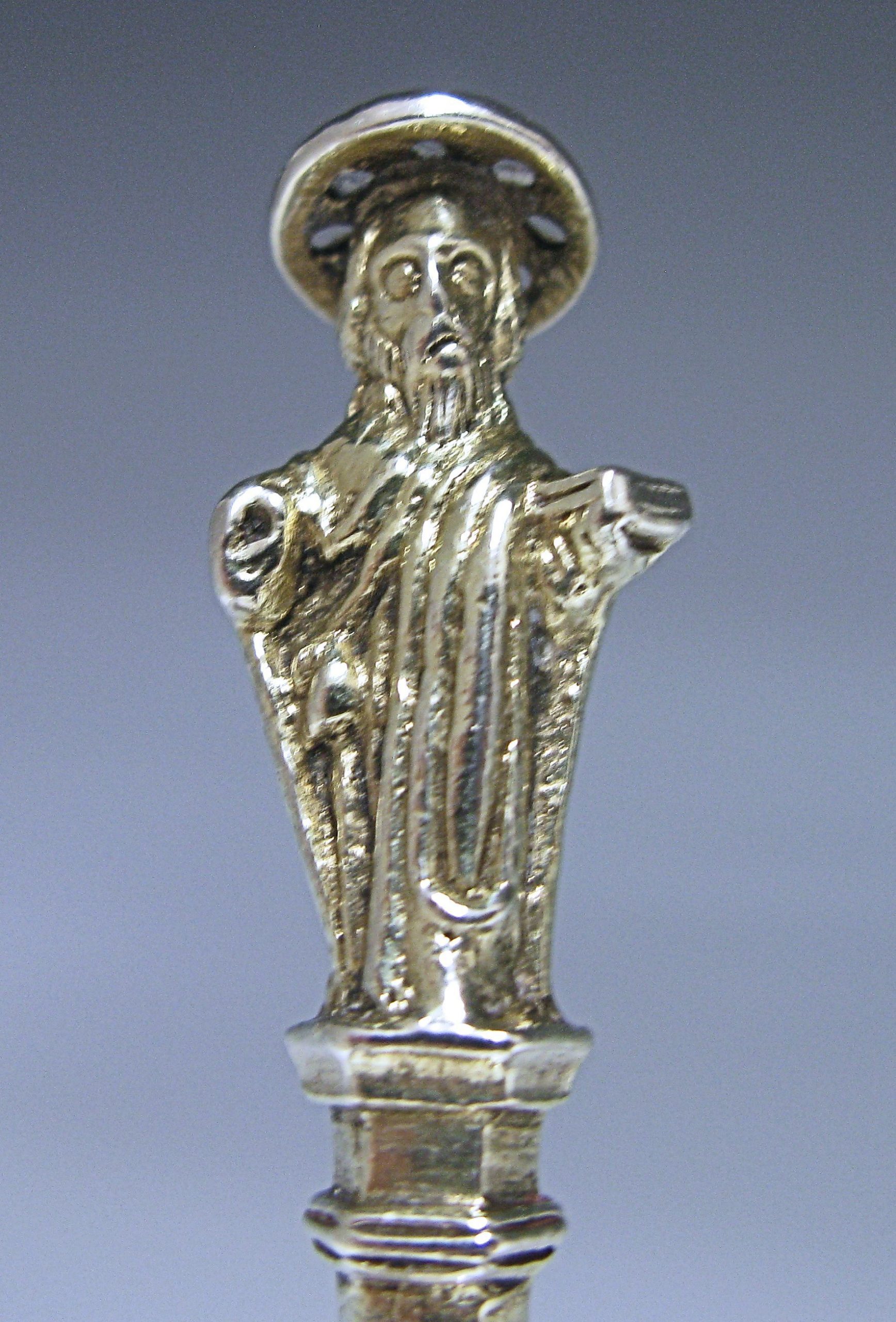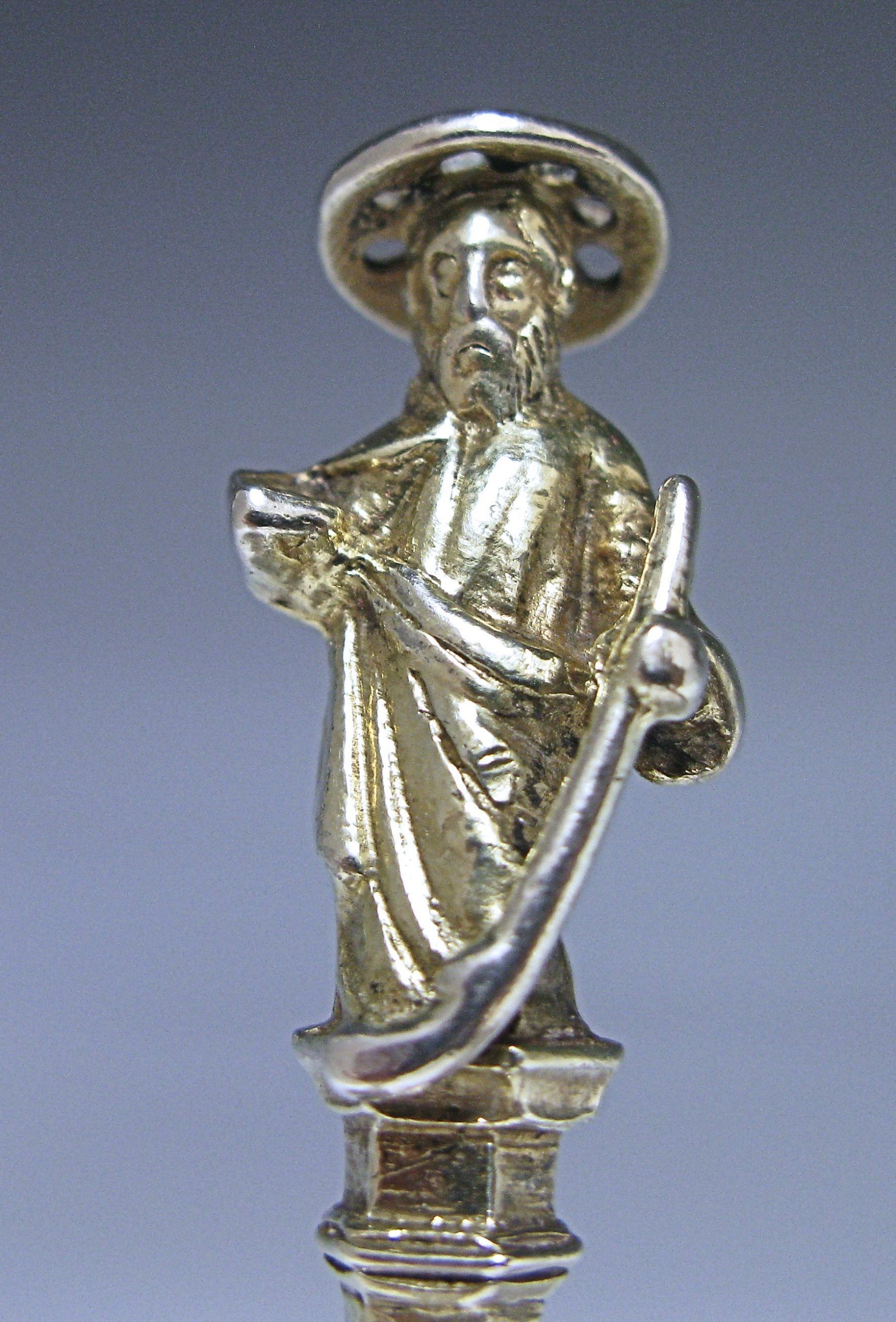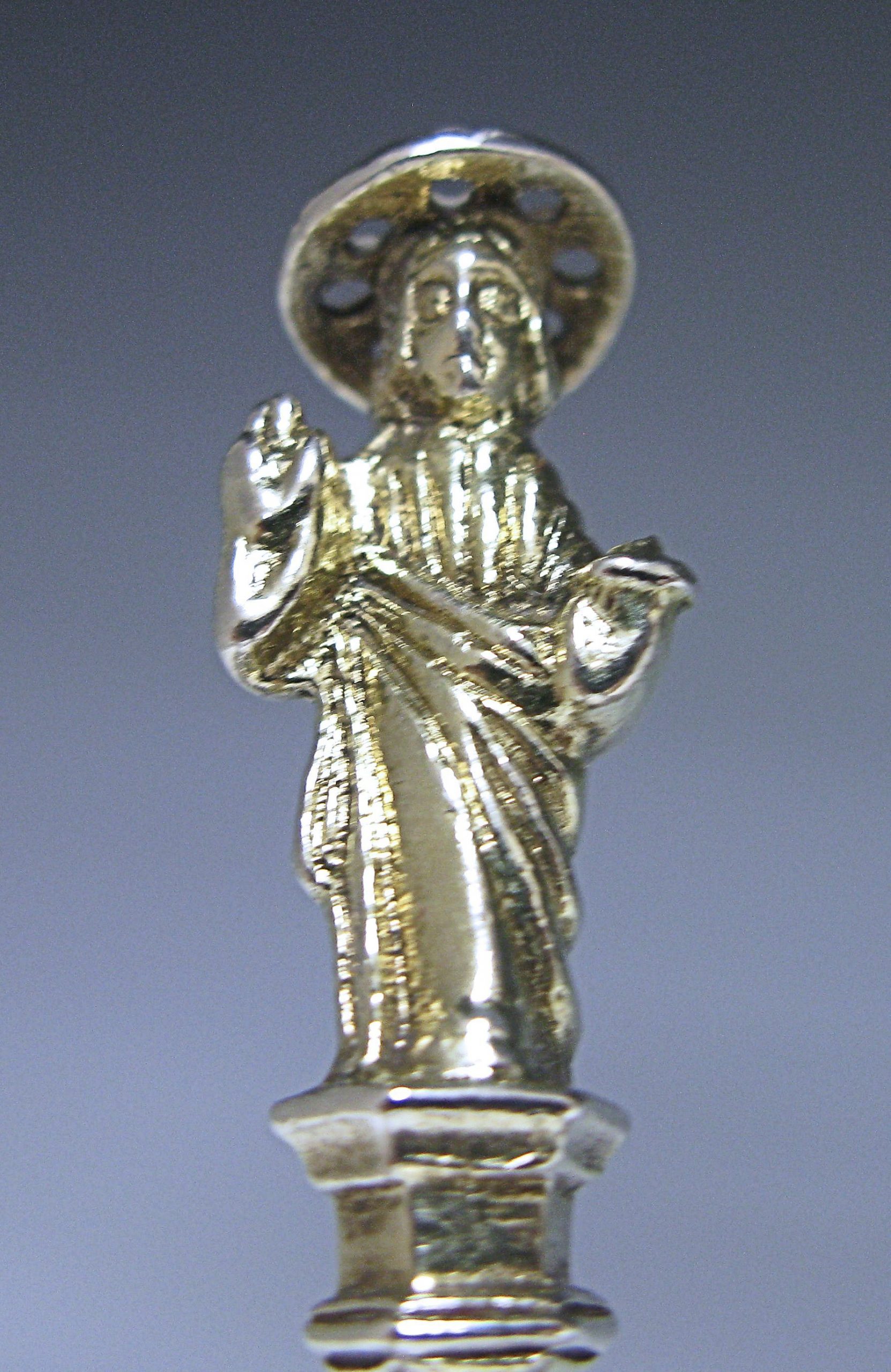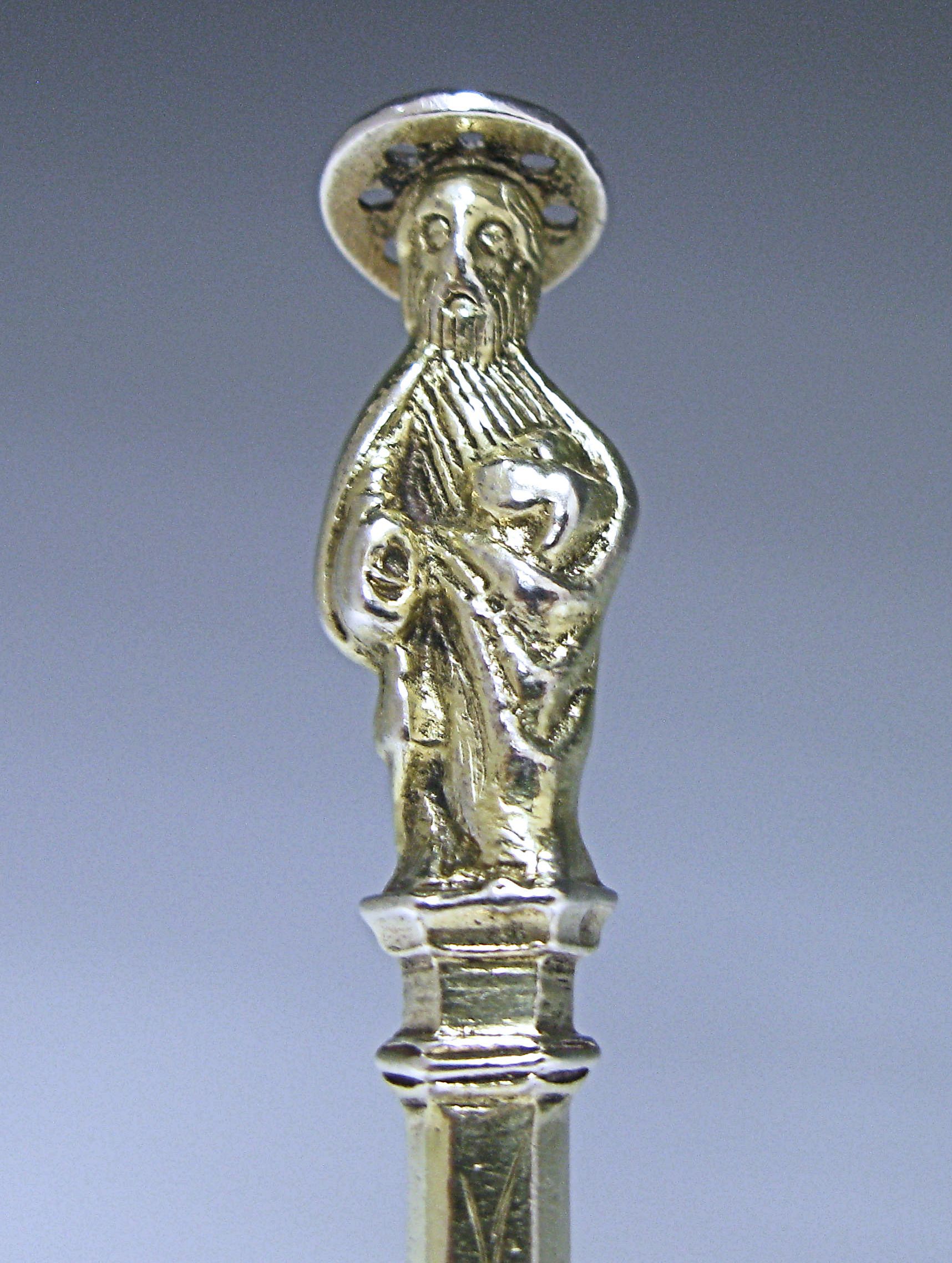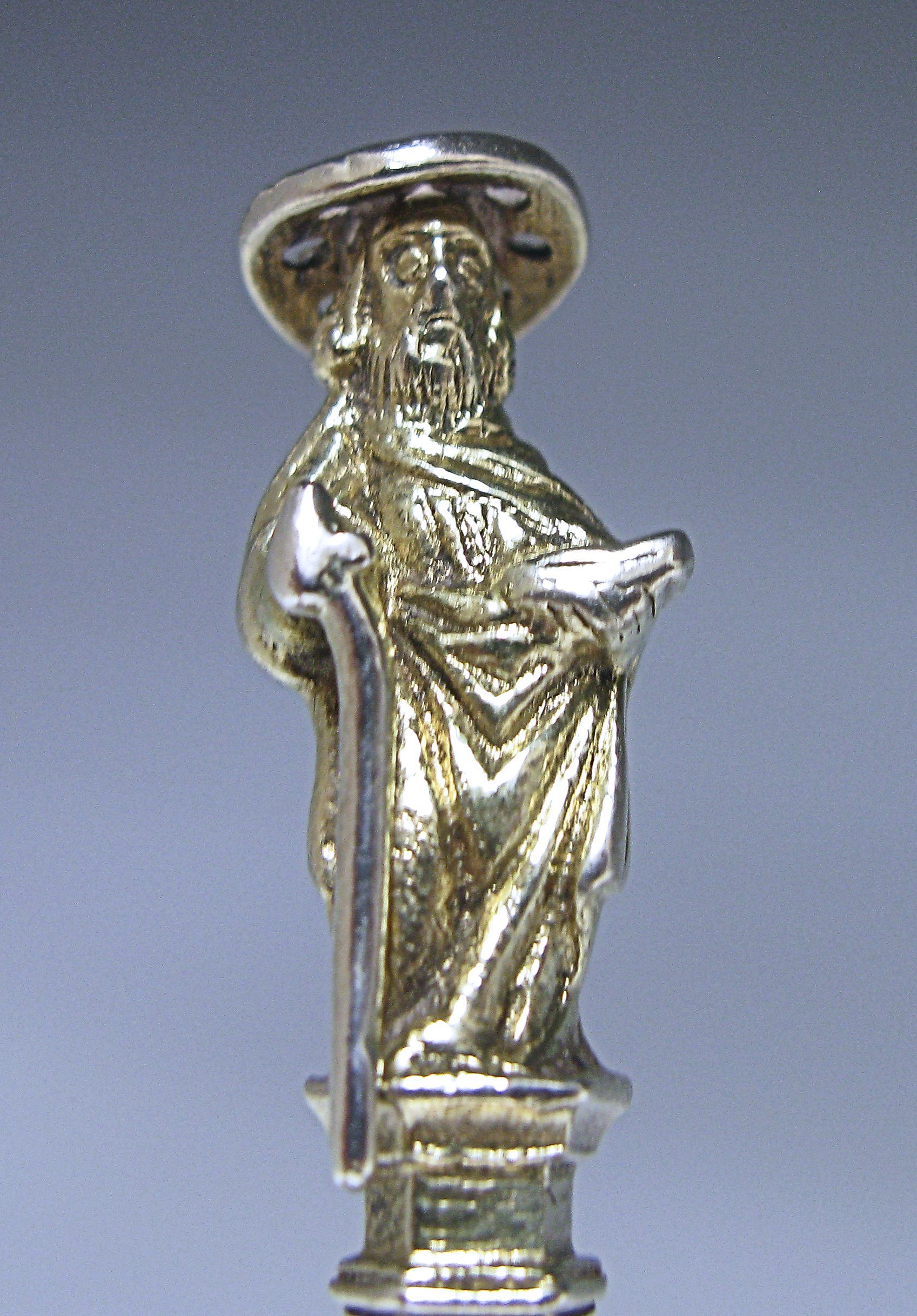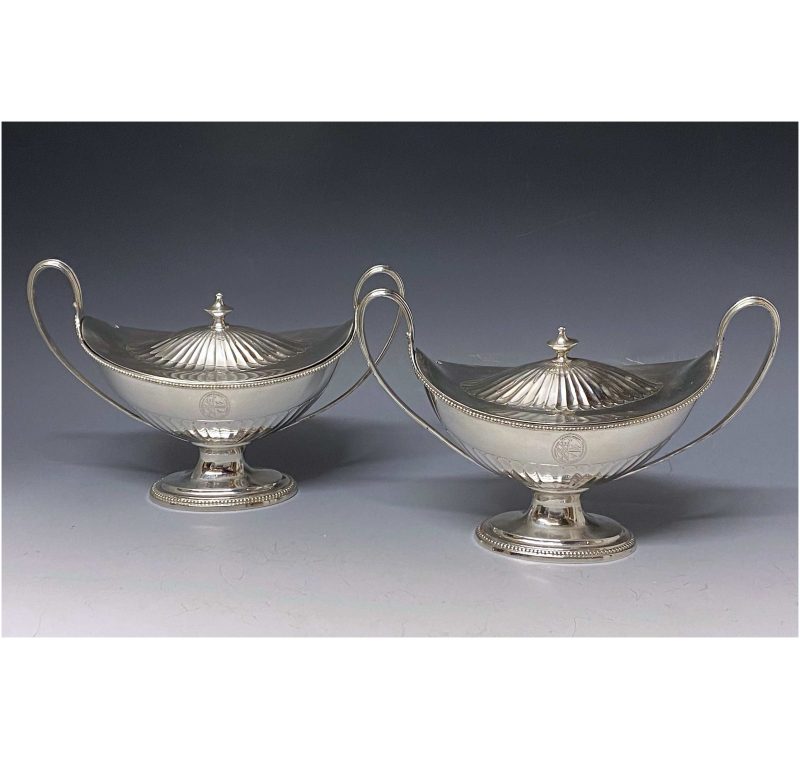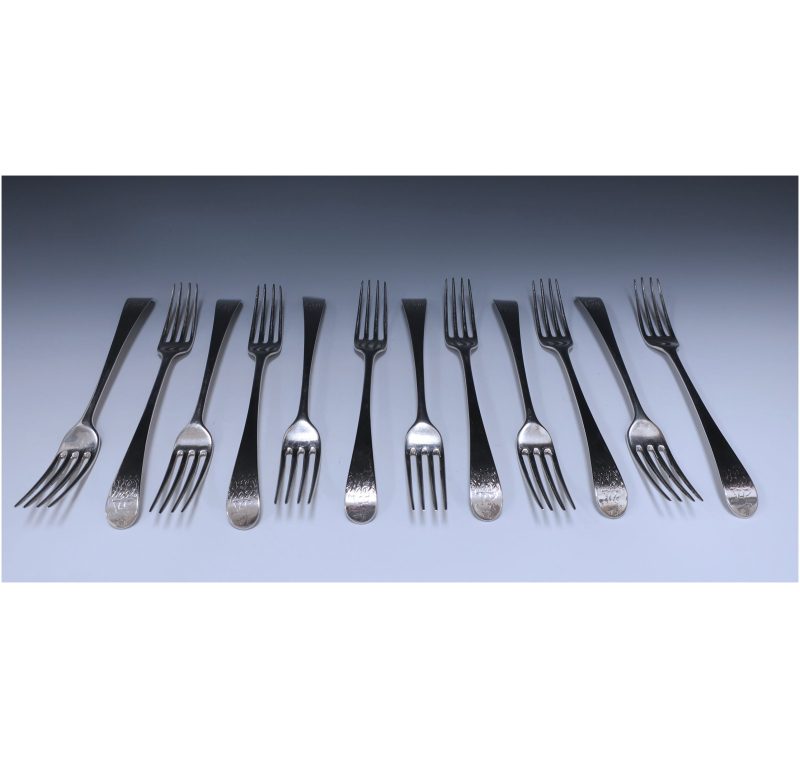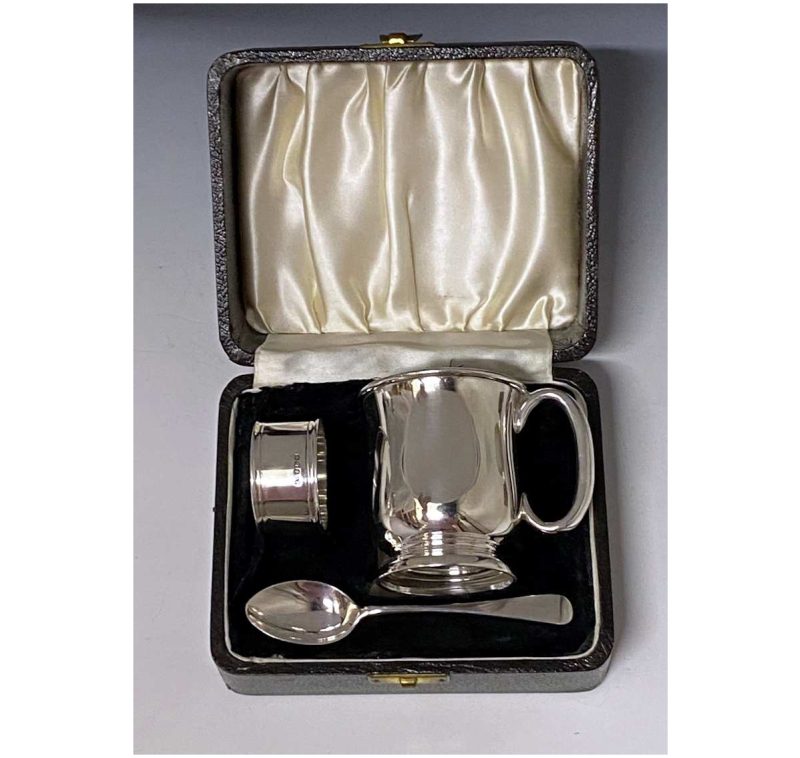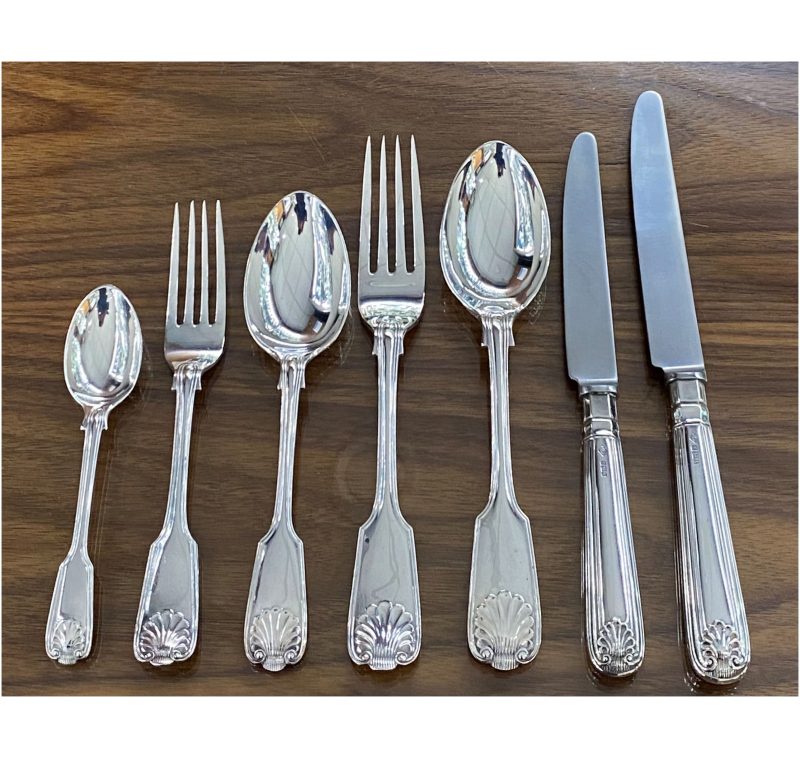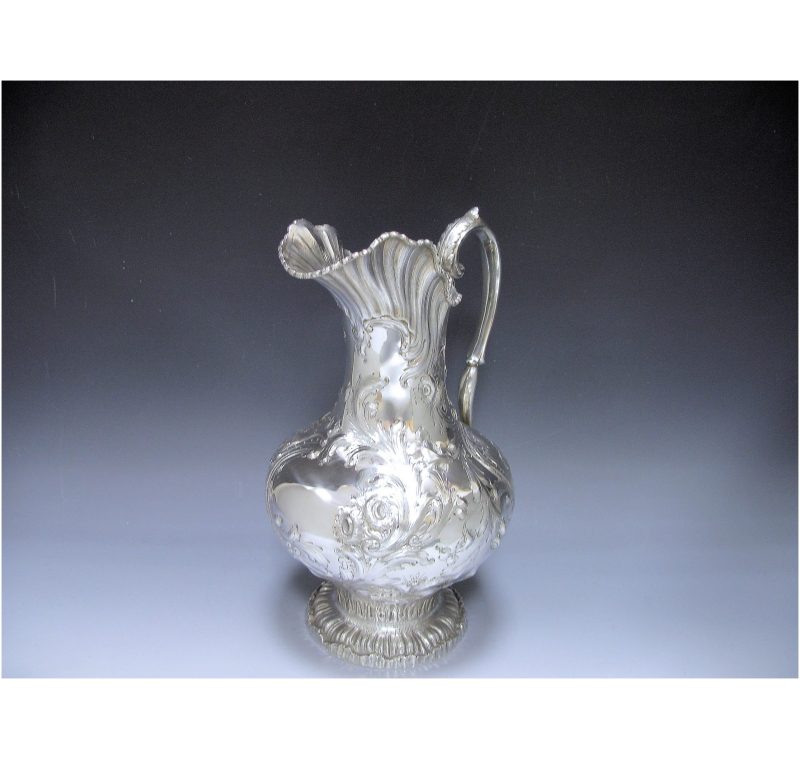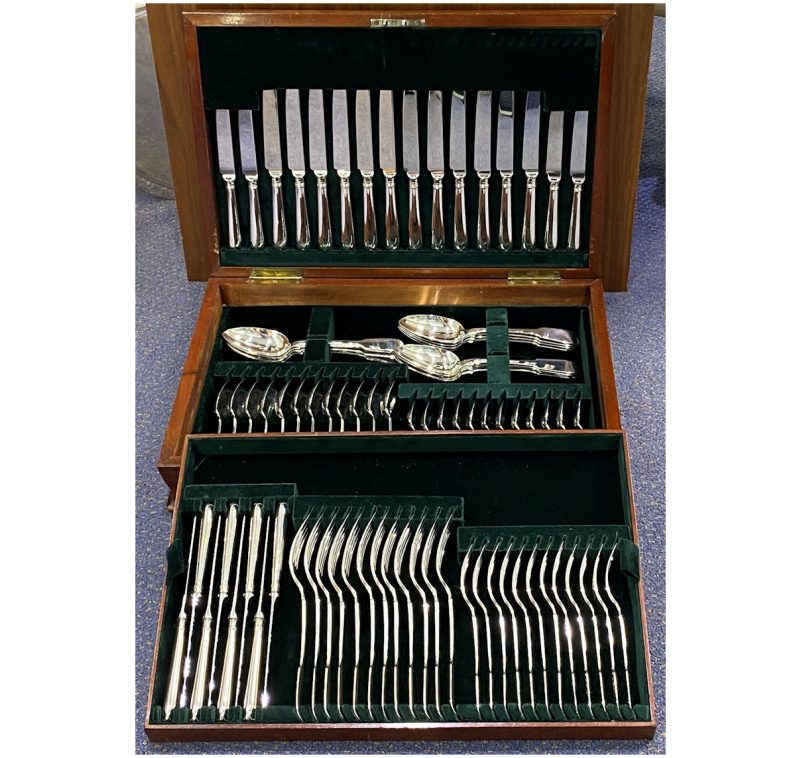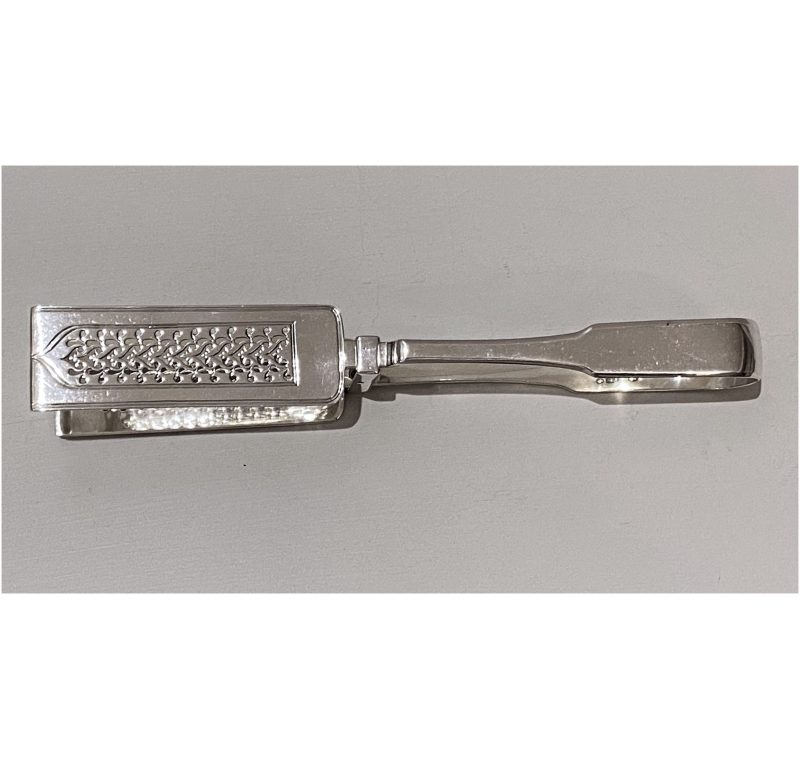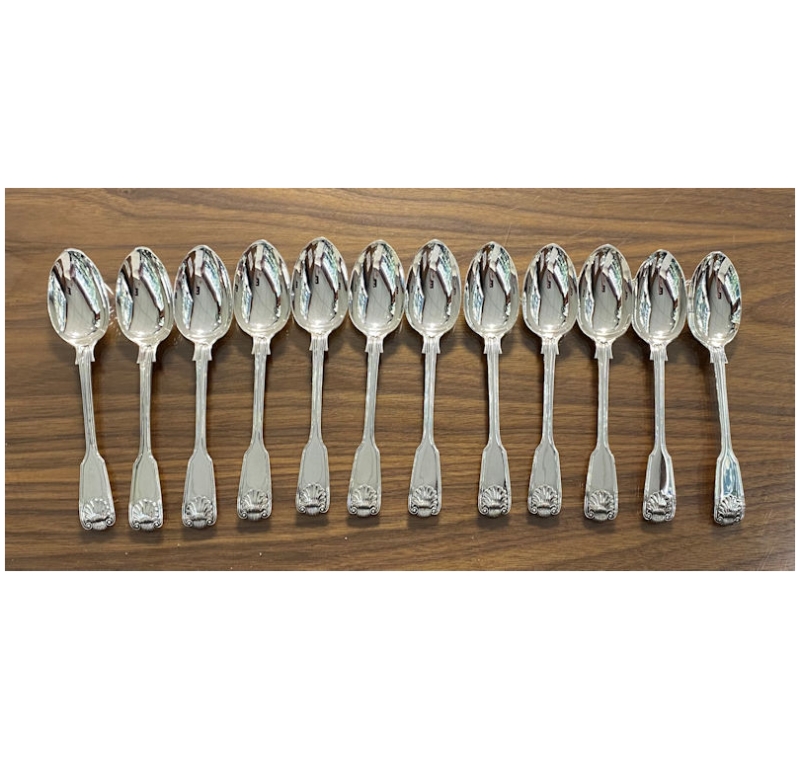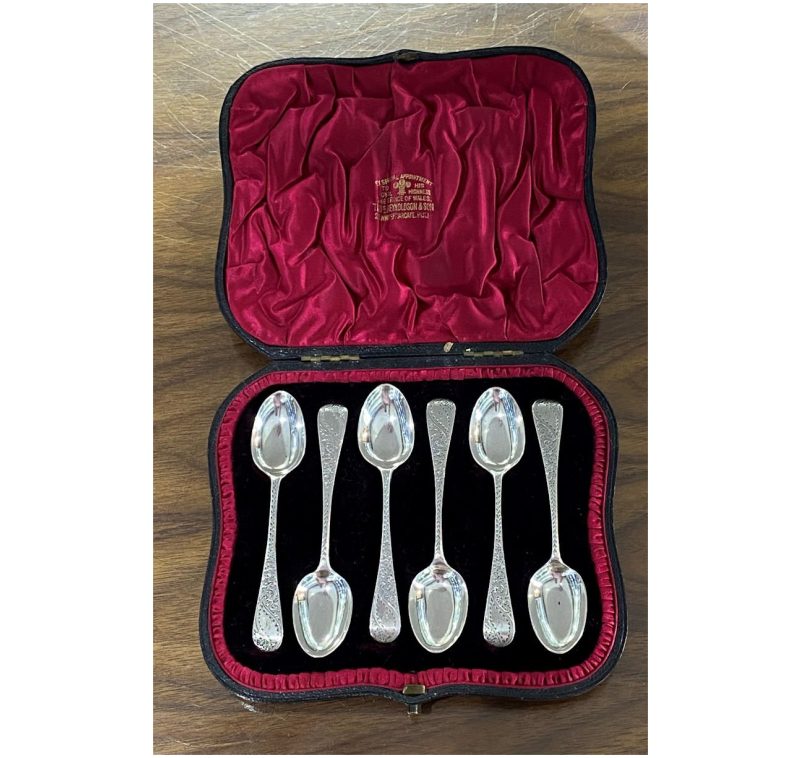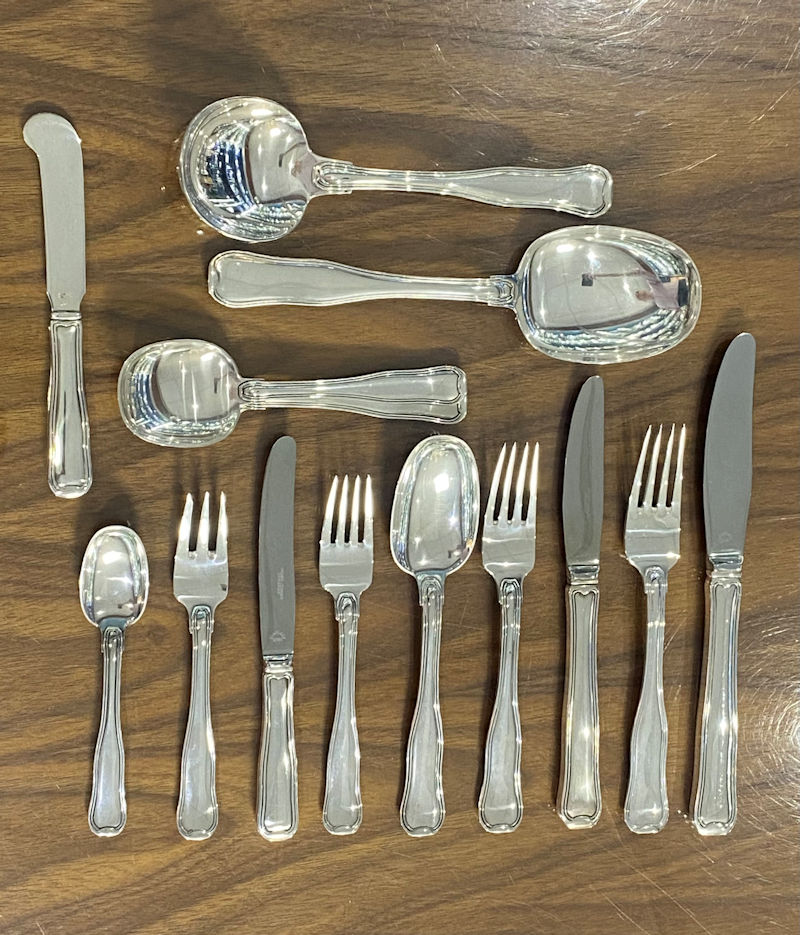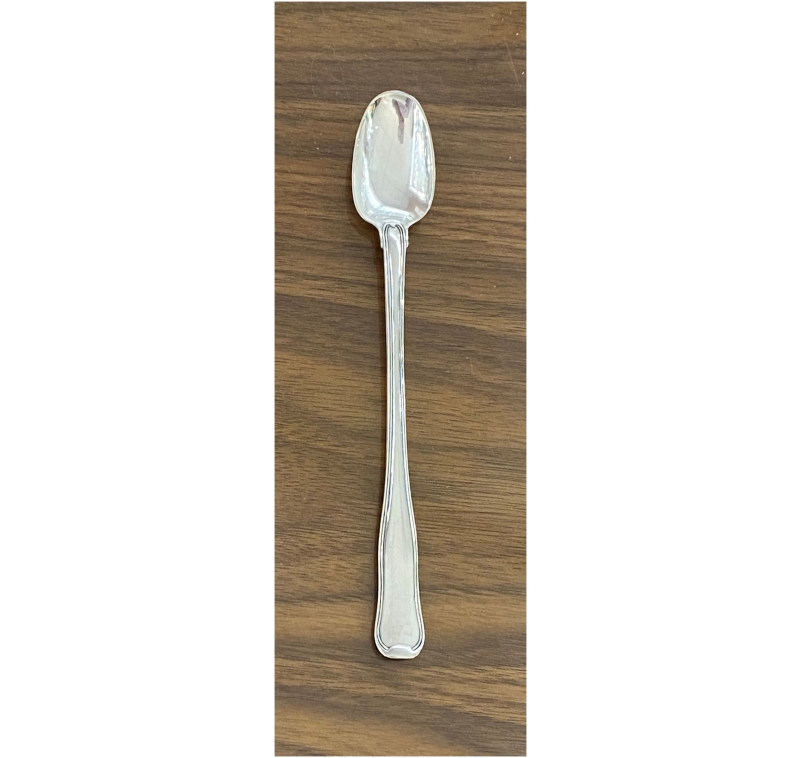Tudor Apostle Spoons: The Swaythling Set made in 1524-53
Please Enquire About Price
Please Enquire About Price
The most significant Tudor period silver to appear on the world market this century. Of great historic importance, this outstanding set of fully hallmarked Tudor period apostle spoons, is the only set remaining in private hands.
| Date | 1524 - 1553 |
| Made By | Robert Amadas & Nicholas Bartholomew |
| Location | London |
| Stock Number | FA98x19 |

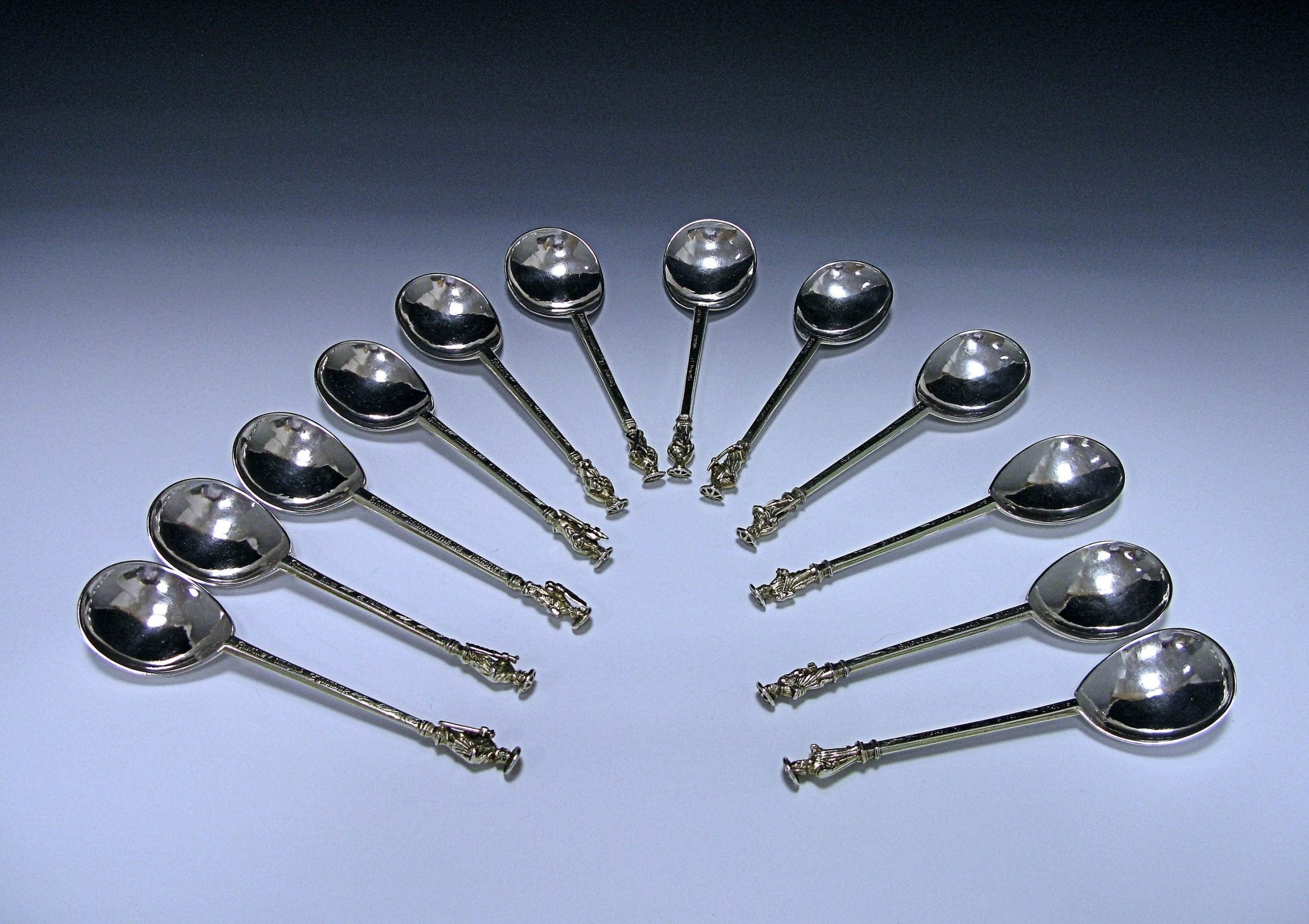
Added to basket
Tudor Apostle Spoons: The Swaythling Set made in 1524-53



The most significant Tudor period silver to appear on the world market this century. Of great historic importance, this outstanding set of fully hallmarked Tudor period apostle spoons, is the only set remaining in private hands.
The only other set of Tudor apostle spoons, sold in the last 100 years, are the Astor set of 1536 which were sold 40 years ago. They are now in the British Museum.
The magnificent Swaythling Set is comprised of six Henry VIII and six Mary I parcel-gilt apostle spoons. To place the spoons in a historical context, the reign of Henry VIII was from 21 April 1509 till his death on 28 January 1547.
Queen Mary I lasted just five tumultuous years, during which time she was known for her brutal persecution of Protestants and gave rise to her sobriquet “Bloody Mary”. She was the daughter of Henry VIII and his first wife, Catherine of Aragon. She came to throne in 1553, following the death of her half-brother, Edward VI, and the nine day reign of Lady Jane Grey.
The spoons are believed to have been presented by Charles II to Martha Clayton, the wife of Sir Robert Clayton, Lord Mayor of London, who was later director of the Bank of England. In the London Gazette, it is reported that on Tuesday the 9th of March, 1679-80, King Charles II and the Duke of York, did Sir Robert Clayton, then Lord Mayor, the honour to sup with him at house in the Old Jewry. In the History of Parliament, it is written, the house he built for himself in Old Jewry had a banqueting hall more splendid than anything in the royal palaces, and as sheriff, he entertained the King and most of the nobility there. Evelyn wrote of him as this prince of citizens, there never having been any, who, for the stateliness of his palace, prodigious feasting, and magnificence exceeded him.
The six dated 1524 have the maker’s mark “a heart” attributed to Robert Amadas; and the six dated 1553 have the maker’s mark “a crescent enclosing a mullet” attributed to Nicholas Bartholomew. All the spoons have pear shaped bowls, with scratch weights and conjoined initials “MC” below inscribed tapering hexagonal stems and gilt terminal figures – each with emblem and pierced rayed nimbus.
The inscriptions and scratch weights are as follows:
The 1524 six:
Sanctus Mathias Apostolus 2=2=00
Sanctus Phelippus Apostolus 2=4=0
Sanctus Simon Apostolus 2=1=00
Sanctus Bartholomeus Apostolus 2=0=0
Sanctus Matheus Apostolus 2=4=0
Sanctus Andreas Apostolus 2=2=12
The 1553 six:
Sanctus Iohanus Apostolus 2=2=00
Sanctus Paulus Apostolus 2=2=0
Sanctus Petrus Apostolus 2=12=12
Sanctus Thomas Apostolus 2=2=12
Sanctus Iacobus Minor Apostolus 2=3=0
Sanctus Iacobus Maior Apostolus 2=18=12
Dimensions: length 18.5 cm (7.25 in); weight (approximately) 785 grams 25 oz 5 dwt.
Price on application and viewing by appointment only.
Provenance: Provenance
This magnificent set of 12 apostle spoons were first sold on 28 March 1892 by Christie’s of London – they have since been known as “The Swaythling Set” as they were passed into the collection of the famous British banker, Sir Samuel Montagu, 1st Baron Swaythling. Sir Samuel Montagu’s interest – apart from the magnificence and rarity of the spoons – would also have been spiked by the fact that Sir Robert Clayton is often known as “the father of British deposit banking”, and was later director of the Bank of England in 1702. Sir Robert Clayton, with his partner John Morris (1625 – 1683), first lent money to private landowners who were driven by the civil war of the 1640s to seek credit in London. These are fully documented in Commander How’s reference book on Early English Spoons.
Finding pre-Elizabethan Hallmarked silver is of extreme rarity, and these spoons are almost certainly the finest remaining objects remaining for purchase. Each spoon is in superb condition.
Robert Amadas was a London Goldsmith whose clients included King Henry VIII and his courtiers. He was Master of the King’s Jewel House and one of the Deputy Masters of the Mint. In Henry VIII’s inventories, he has been identified as the largest supplier to the King and Cardinal Wolsey.
Amadas was trained as a goldsmith by his father. He was a free apprentice of the Goldsmiths’ Company in 1492 and “fully sworn to the Company in 1494”.
In 1503, he was admitted to the livery. He was one of the Company’s Wardens in 1511 and 1515, and Prime Warden in 1524 and again in 1530. The last mention of him in the Company’s records was on 15 January 1532, when his apprentice, Brian Berwycke, was sworn to the Company.
Nicholas Bartholomew was one of the most important makers of the period. He used a makers mark of “a crescent enclosing a mullet”. He started his career in 1545 and worked at the Woolsack near Gutter Lane. He had 10 apprentices between 1550 and 1587.
We provide worldwide postage/shipping and everything is fully tracked and insured. Purchases will be sent via Royal Mail Special Delivery, FedEx, Parcel Force, A-Z couriers; other delivery providers may be used in extenuating circumstances. We deliver to the address provided at the time of purchase but not to PO addresses, as a signature is required upon delivery.
Some countries levy import duties and local taxes. Payment of these is the purchaser’s responsibility and beyond the control of William Walter Antiques Ltd. When the container has reached the destination country, a customs representative will contact you for payment prior to delivery.
Import restrictions are applicable to some destinations, especially the import of products containing materials such as ivory and tortoiseshell. We cannot accept orders requiring shipment to any countries which implement such controls.
All items are checked and photographed prior to packaging, and we aim to dispatch 1-3 days after receiving cleared payment.
Delivery Charges:
For the UK £15.00
For Europe £30.00
For the rest of World £50.00
The charges are subject to change
At the heart of William Walter Antiques is our dedication to providing our customers with beautiful silver of supreme quality, which celebrates all that is precious about sterling silver. Customer service also being paramount, our long-standing, devoted staff team go above and beyond the call of duty for all our clients. We believe it is this combination of passion and commitment that has kept our customers with us for many years.
We accept credit/debit cards or bank transfer. Please submit an enquiry below or contact us on:
Phone Number
+44 (0) 207 242 3248
Email
info@williamwalter.co.uk
Visit us at the London Silver Vaults
William Walter Antiques,
London Silver Vaults,
53-64 Chancery Lane,
London, WC2A 1QS
Opening Hours
Mon – Fri: 10:00 – 17:00
Sat: 09:00 – 12.30

